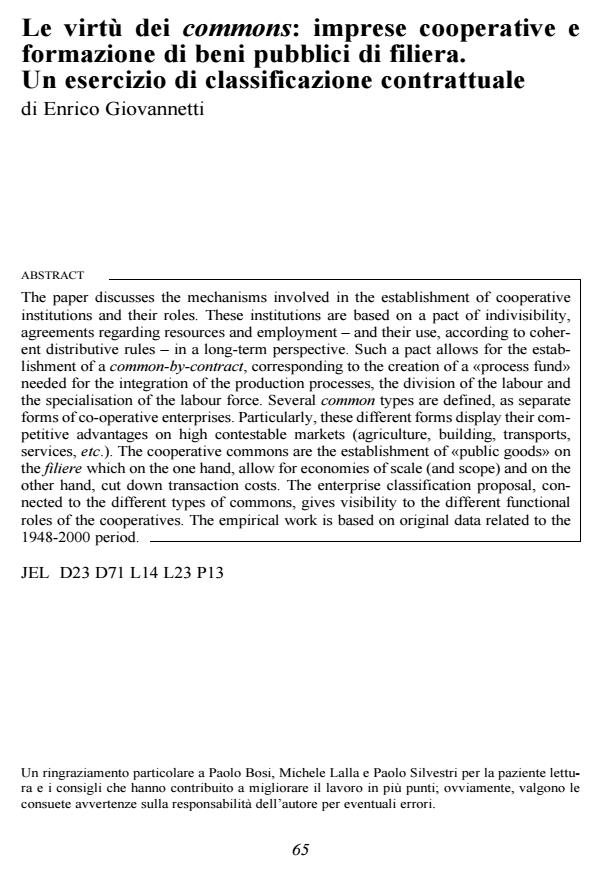Le virtù dei commons: imprese cooperative e formazione di beni pubblici di filiera. Un esercizio di classificazione contrattuale
Journal title ECONOMIA PUBBLICA
Author/s Enrico Giovannetti
Publishing Year 2002 Issue 2002/3
Language Italian Pages 39 P. File size 375 KB
DOI
DOI is like a bar code for intellectual property: to have more infomation
click here
Below, you can see the article first page
If you want to buy this article in PDF format, you can do it, following the instructions to buy download credits

FrancoAngeli is member of Publishers International Linking Association, Inc (PILA), a not-for-profit association which run the CrossRef service enabling links to and from online scholarly content.
The paper discusses the mechanisms involved in the establishment of cooperative institutions and their roles. These institutions are based on a pact of indivisibility, agreements regarding resources and employment - and their use, according to coherent distributive rules - in a long-term perspective. Such a pact allows for the establishment of a common-by-contract, corresponding to the creation of a «process fund» needed for the integration of the production processes, the division of the labour and the specialisation of the labour force. Several commontypes are defined, as separate forms of co-operative enterprises. Particularly, these different forms display their competitive advantages on high contestable markets (agriculture, building, transports, services, etc.). The cooperative commons are the establishment of «public goods» on the filierewhich on the one hand, allow for economies of scale (and scope) and on the other hand, cut down transaction costs. The enterprise classification proposal, connected to the different types of commons, gives visibility to the different functional roles of the cooperatives. The empirical work is based on original data related to the 1948-2000 period.
Enrico Giovannetti, Le virtù dei commons: imprese cooperative e formazione di beni pubblici di filiera. Un esercizio di classificazione contrattuale in "ECONOMIA PUBBLICA " 3/2002, pp , DOI: